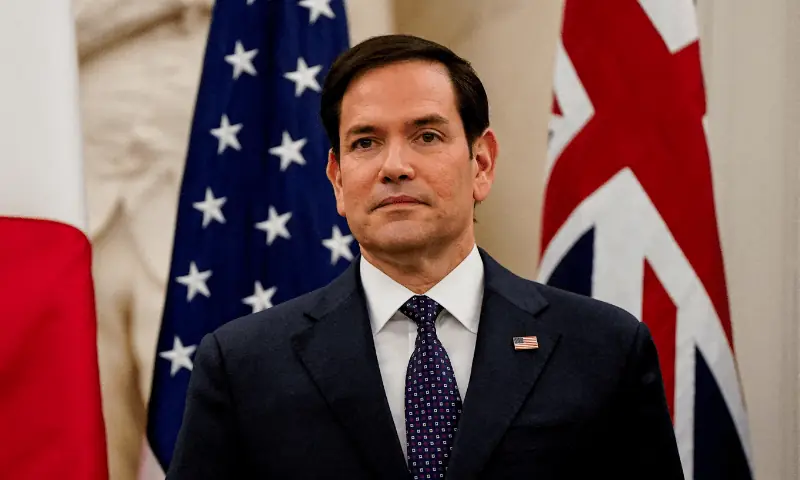US Pakistan Strategic Partnership Deepens Without Diminishing India Ties
Secretary of State Marco Rubio has articulated a clear vision for a growing US Pakistan strategic partnership, affirming that this diplomatic strengthening does not come at the expense of Washington’s deep and historic relationship with India. During a recent press briefing, Rubio addressed inquiries about potential concerns from New Delhi, emphasizing a pragmatic and mature approach to international relations. He stated that the United States perceives a significant opportunity to broaden its strategic engagement with Pakistan, a nation with which it shares a long history of collaboration, particularly in counterterrorism.
When questioned whether India had raised objections to the reinvigorated US-Pakistan ties, Rubio acknowledged New Delhi’s inherent concerns due to longstanding regional tensions. However, he expressed confidence in India’s diplomatic maturity, noting that nations often maintain separate, simultaneous relationships. “I don’t think anything we’re doing with Pakistan comes at the expense of our relationship or friendship with India, which is deep, historic, and important,” Rubio stated, framing the policy as part of a broader effort to build partnerships based on common interests wherever possible.
A Turning Point Acknowledged and a Foundation Built
The Secretary of State was also asked to identify a potential turning point in the relationship, specifically if Pakistan’s appreciation for the U.S. role in de-escalating a recent India-Pakistan crisis was a factor. Rubio began his response by affirming, “I think they appreciated,” referencing the diplomatic intervention. He clarified, however, that outreach to Pakistan had commenced even before that specific conflict, signaling a premeditated and strategic effort to rebuild the alliance. This groundwork has paved the way for a more substantial and multi-faceted partnership.
Rubio reiterated that the administration is fully cognizant of the complexities involved, including the sensitive dynamics with India. The objective, he explained, is to create opportunities for cooperation in areas where mutual interests align. While the partnership has historically centered on counterterrorism, the U.S. now aims to expand collaboration into new domains. “We’d like to expand it beyond that, if possible,” Rubio said, acknowledging that challenges remain but characterizing the strengthened relationship as “very encouraging.”
Concrete Steps and High-Level Engagement
The diplomatic rhetoric is being matched by concrete actions. A report earlier this month highlighted that the two allies are advancing into a new phase of economic and strategic cooperation, centered on a deal for the export of rare earth minerals from Pakistan. This newfound partnership has been visibly catalyzed by high-level engagements. Pakistan’s Chief of Army Staff, Field Marshal Asim Munir, undertook a landmark five-day official visit to Washington in June, which included a luncheon meeting with President Donald Trump—marking the first time a serving Pakistani army chief has met face-to-face with a sitting U.S. president.
This visit set the stage for continued dialogue. Field Marshal Munir’s subsequent trip to the U.S. in August was described as adding a “new dimension” to bilateral ties. The engagement culminated in September when he accompanied Prime Minister Shehbaz Sharif to a meeting with President Trump on the sidelines of the United Nations General Assembly, where regional security and counter-terrorism cooperation were key topics.
Economic Dimensions and Future Prospects
The evolving US Pakistan strategic partnership is also gaining a significant economic cornerstone. In a major development, the American metals company US Strategic Metals (USSM) signed a memorandum of understanding with Pakistan in September for a proposed investment of roughly $500 million to establish mineral processing facilities in the country. The company recently dispatched its first consignment of mineral samples, including antimony, copper concentrate, and critical rare earth elements, to the United States.
USSM has described this shipment as a milestone, noting that the MoU establishes a comprehensive roadmap for cooperation across the entire mineral value chain—from exploration and processing to the establishment of refineries inside Pakistan. This tangible economic collaboration, coupled with sustained high-level political engagement, underscores a concerted effort from both capitals to build a durable and expanded US Pakistan strategic partnership for the future.














